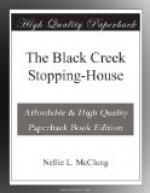That night the Pigeon Book received the following entry:
April 21st.—I let them out and, they came back—they are sweet pets. I dreem about them every night I have two dreems, my good dreem is the’ve layd my bad dreem is about tomcats and two little heaps of fethers its horrid.
The next week another entry went into the book:
I sold another pare to-day I’ve raised the price this pare is to be delivered in Ogist. I gave them a bran mash to-day, it makes them lay sure.
Under this Jack wrote:
Thinking of the August delivery.
The next entry was this:
May 1st.—Wilfred G. is pritty meen, he thinks he knows it all. they aint goin to lay all in a hurry.
There seemed to be no doubt about this. They certainly were not. In spite of bran mashes, pepper, cotton batting, blue veil and tender care, they refused to even consider the question of laying.
Philip was quite satisfied with them as they were, if they would only stay with him, but the customers who had bought and paid for highly recommended young fowl were inclined to be impatient and even unpleasant when the two parent birds were to be seen gadding around the street at all hours of the day, utterly regardless of their young master’s promises.
Philip learned to call them. His “cutacutacoo—cutacutacoo” could be heard up and down the street. Sometimes they seemed to pay a little attention to him, and then his joy was full. More often they seemed to say, “Cutacutacoo yourself!” or some such saucy word, and fly farther away.
One night they did not come home. Philip’s most insistent “cutacutacoo” brought no response. He hired boys to help him to look for them, beggaring himself of allies and marbles, even giving away his Lucky Shooter, a mottled pee-wee, to a lynx-eyed young hunter who claimed to be able to see in the dark. He even dared the town constable by staying out long after the curfew had rung, looking and asking. No one had seen them.
Through the night it rained, a cold, cruel rain—or so it seemed to the sad-hearted, wide-awake little boy. He stole out quietly, afraid that he might be sent back to bed, but only his mother heard him, and she understood. It was lonesome and dark outside, but love lighted his way. He groped his way up the ladder, hoping to find them, but though the straw, the cotton batting, the blue veil, the water-dish were all in place—there were no pigeons!
Philip came back to bed, cold and wet in body, but his heart colder still with fear, and his face wetter with tears. Under cover of the night a boy of ten can cry all he wants to.
His mother, who heard him going out and who understood, called softly to him to come to her room, and then sympathized. She said they were safe enough, never fear, with some flock of pigeons; they had got lonesome, that was all; they would come back when they got hungry, and the rain would not hurt them, and be sure to wipe his feet!




